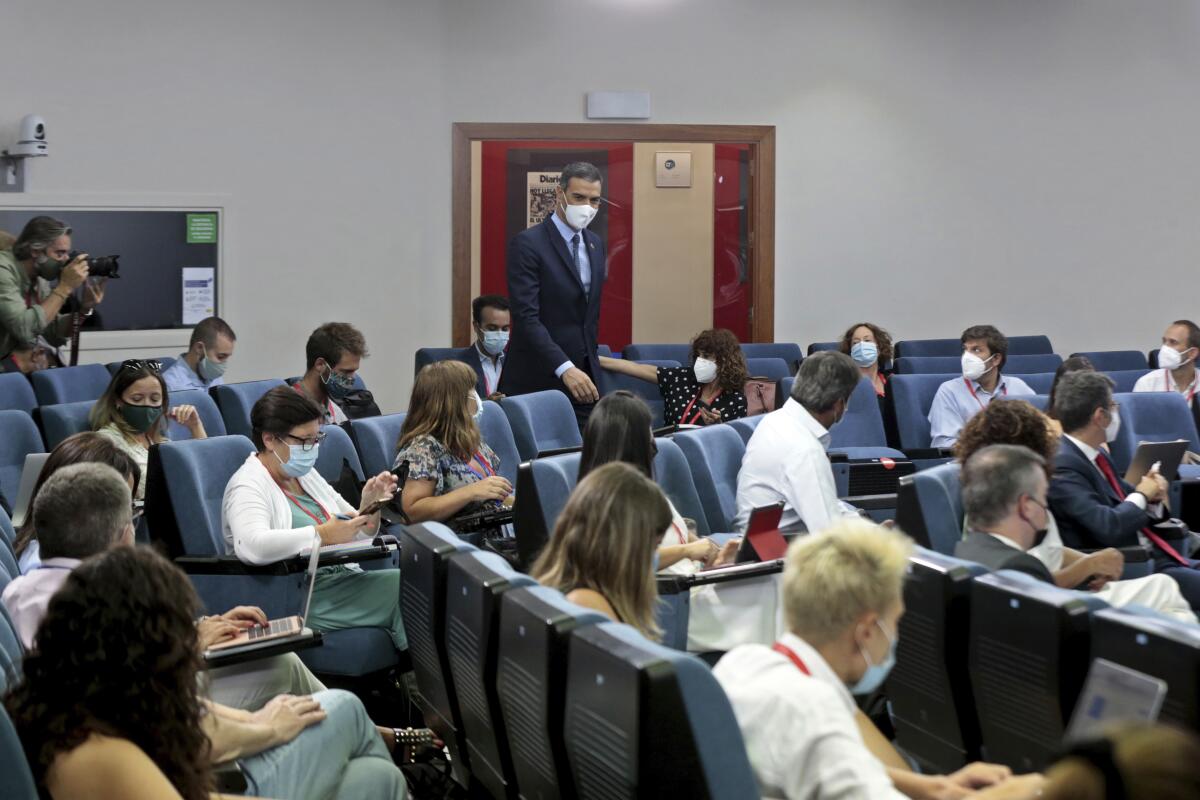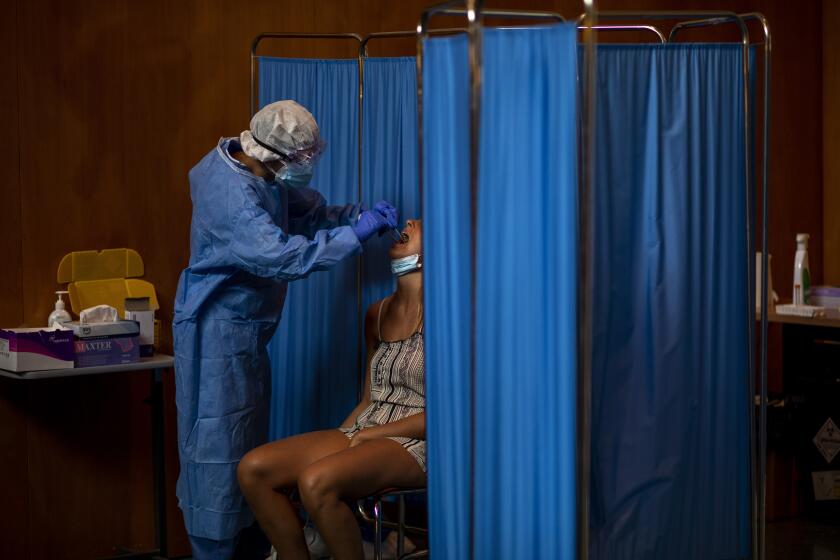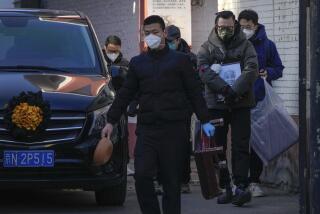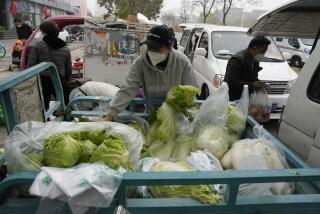Facing 2nd big coronavirus wave, Spain deploys soldiers to track infections

MADRID — Under strain from Europe’s fastest-growing wave of coronavirus infections, the Spanish government has cleared the way for more localized lockdowns and deployed the military to bolster the country’s faltering attempts to trace infections.
With more than 400,000 confirmed cases since the onset of the epidemic and dozens of fresh daily clusters being reported only days before the school year begins, Spain is grappling to slow the uncontrolled transmission of the virus. At least 28,872 people with COVID-19 have died in Spain since February. That figure does not include many who died without being tested for the coronavirus.
The recent rebound in new cases, including 7,100 reported Tuesday, has again made Spain the country with the most confirmed cases in Europe, with a total of 412,553. Spain’s cumulative incidence of 175.7 infections for every 100,000 inhabitants during the past 14 days, a variable closely watched by epidemiologists, is the highest by far in the region. Only Malta, with 123.6 cases per 100,000, also exceeds the 100 mark.
Prime Minister Pedro Sánchez said Tuesday that Spain’s current infection rate is “preoccupying” but “far from the situation in mid-March,” when his government imposed a state of emergency and a nationwide lockdown.
“There should be no fear that paralyzes us and prevents us from acting,” the Socialist leader said in a televised statement. “What’s needed is a stronger response to the threat.”
Sánchez offered officials running the country’s 17 regions 2,000 soldiers trained in contact tracing, which experts have identified as one of the country’s weakest points in the aftermath of the pandemic’s first wave, which was devastating in Spain.
Spain is facing another surge in coronavirus infections less than two months after beating back the first wave, with 44,000 cases in the past 14 days.
Sánchez also pledged to declare regional emergency orders if the coronavirus continues spreading, something that should in theory help regional officials issue new stay-at-home orders, restrict mobility or curtail other activities.
In Spain’s highly decentralized system, regions took over pandemic management from the central government in mid-June, at the end of the three-month national lockdown. But some judges have ruled against regional moves to restrict nightlife and outdoor smoking or to impose localized confinement orders.
Regional officials, in turn, have complained that their hands are tied because only central authorities can legally declare a state of emergency.
The prime minister’s offer to make such a declaration when regions request it was criticized by opposition parties, which accused Sánchez of deflecting responsibility.
Farmers in Spain fight the coronavirus by using their tractors to disinfect communities.
“Spain has no one at the helm. There is a total absence of leadership,” said Pablo Casado, the head of the conservative Popular Party who leads the opposition to Sánchez’s left-wing coalition government.
The country’s uncompromising lockdown helped reduce the virus infections until June. In light of the recent spike in cases, some experts have said that Spain’s reopening came too early and too fast. The gains from weeks of efforts keeping 46 million residents largely at home have vanished quickly during the summer, long before officials expected to encounter a second wave.
Part of the blame is being put on the insufficient tracking of whoever may have come close to those who test positive. Officials at the Health Ministry have said that more than 60% of the new infections happen in social gatherings, including within families.
In addition to offering military support, Sánchez also encouraged Spaniards to download a smartphone app that the government is rolling out region by region and that, according to the prime minister, would help track the spread of the virus.
Some regions of Spain, such as Catalonia in the northeast and Murcia in the southeast, have extended bans on social gatherings of more than 10 and six people, respectively. Authorities in Madrid, now again in the spotlight for the fastest pace of new recorded cases, are recommending that citizens leave home only for truly necessary activities.
Anxiety is also building among parents and teachers who are expecting revised protocols for a safe return to schools, with eyes set on a key government meeting on the issue Thursday. Kindergarten classes are scheduled to start Sept. 4 in the Spanish capital and the northern Navarra province, with most regions kicking off the new school year by the third week of the month.
More to Read
Sign up for Essential California
The most important California stories and recommendations in your inbox every morning.
You may occasionally receive promotional content from the Los Angeles Times.












